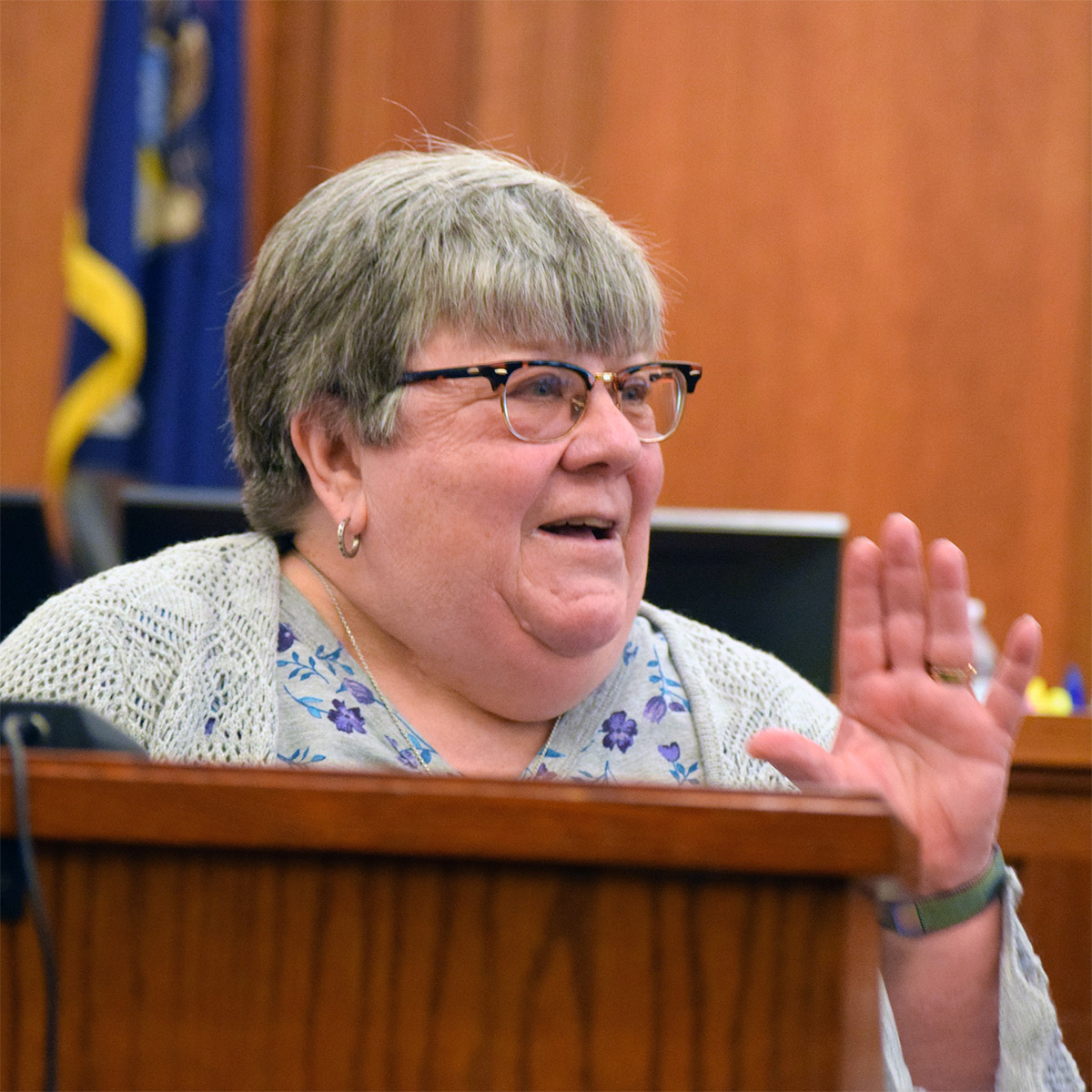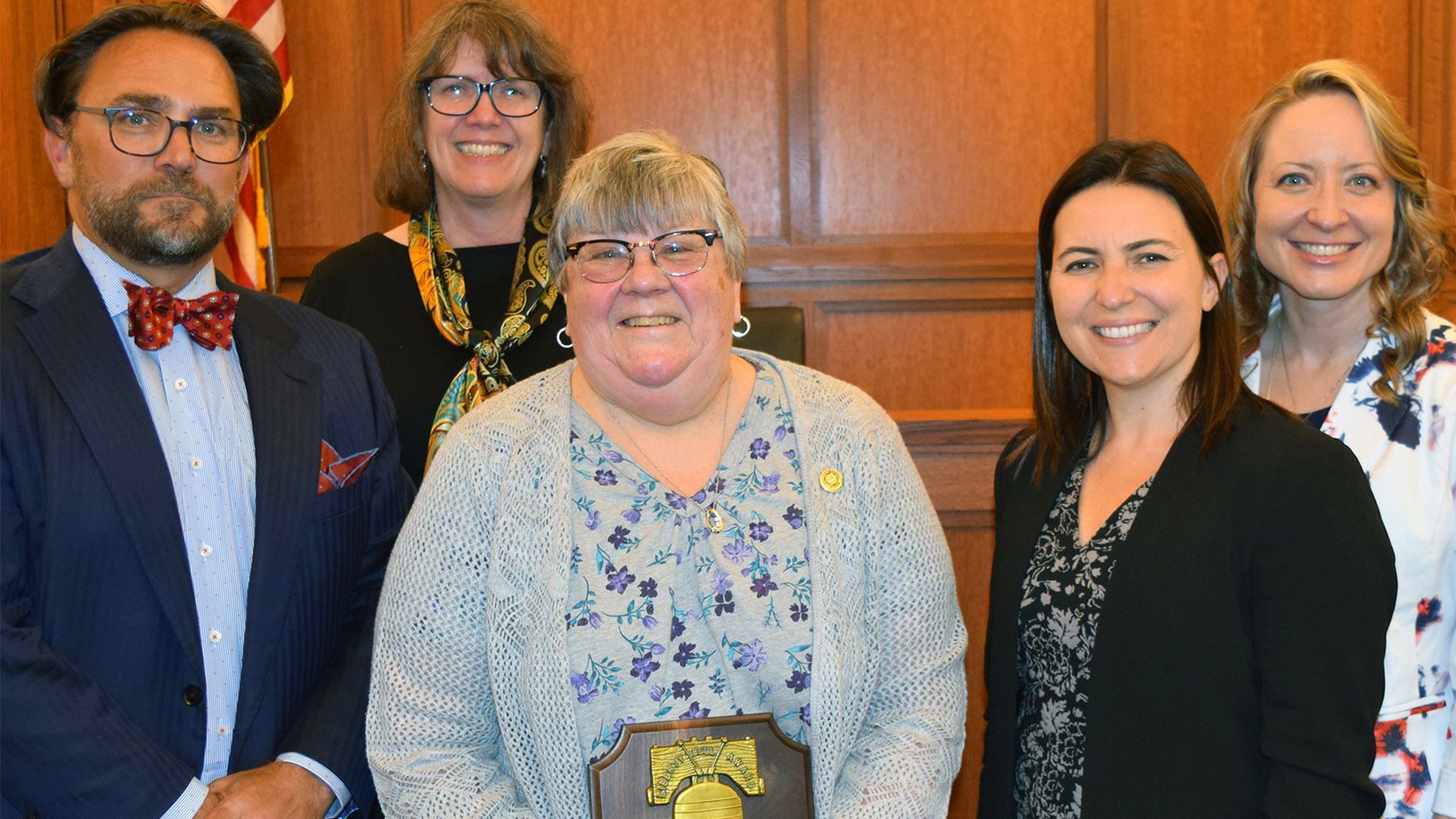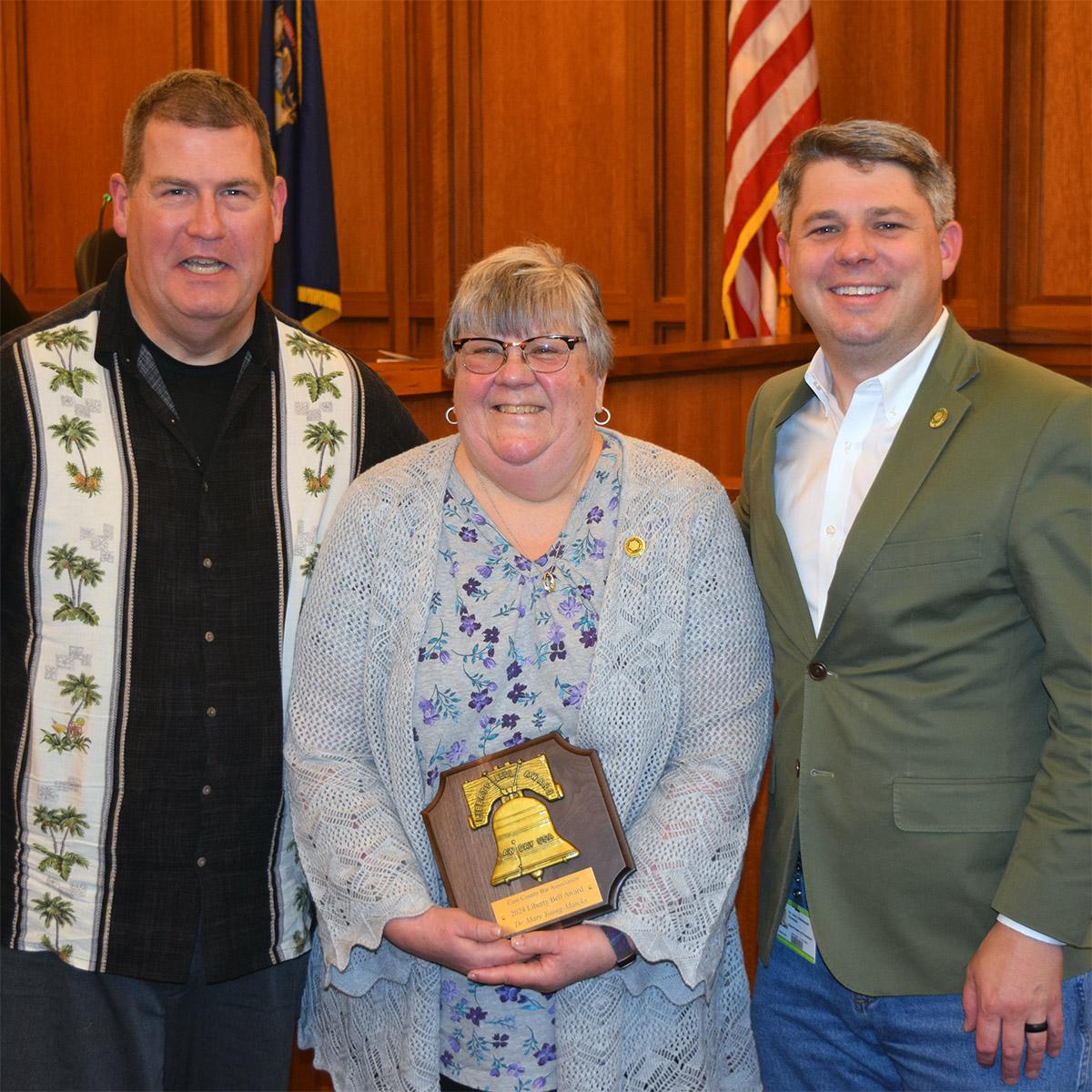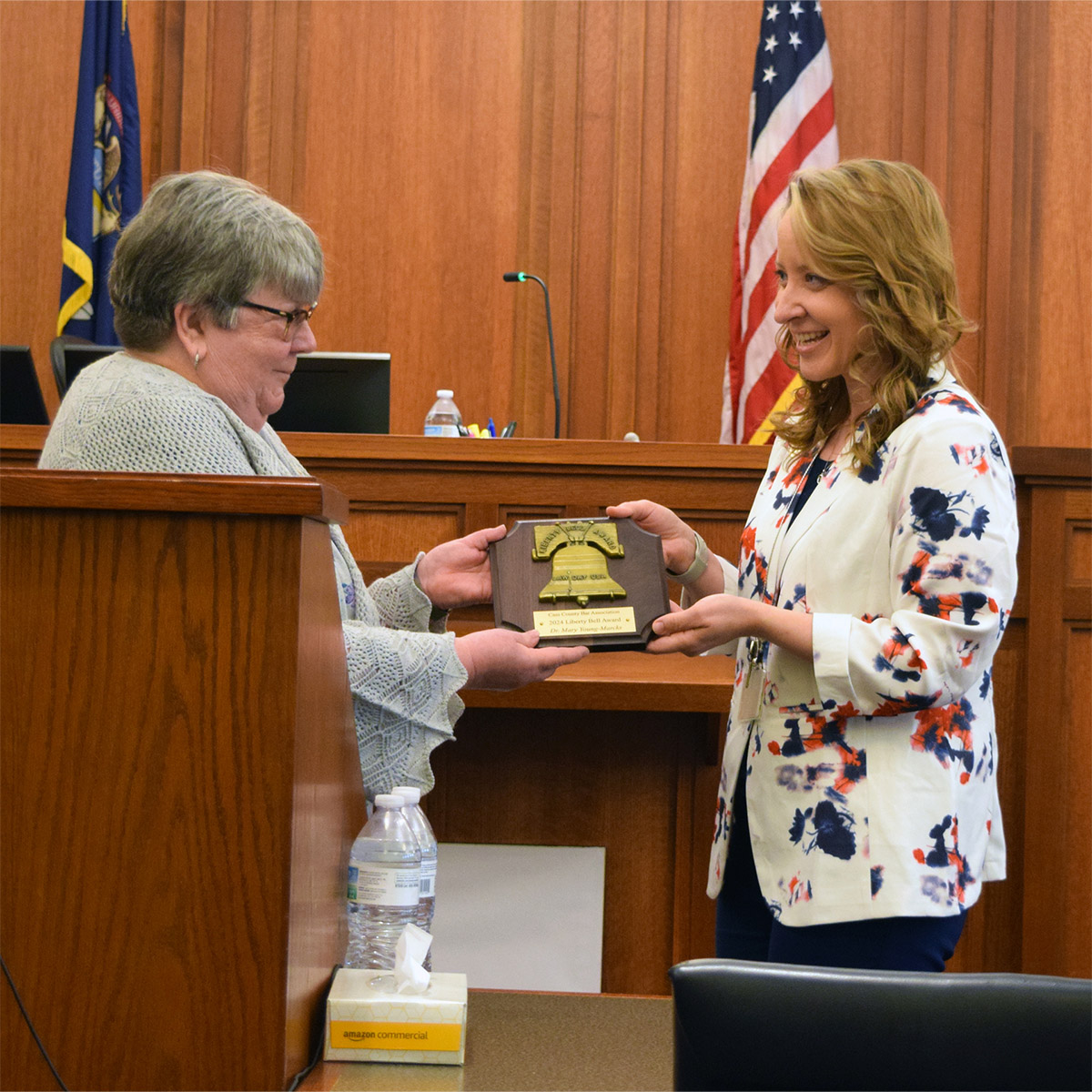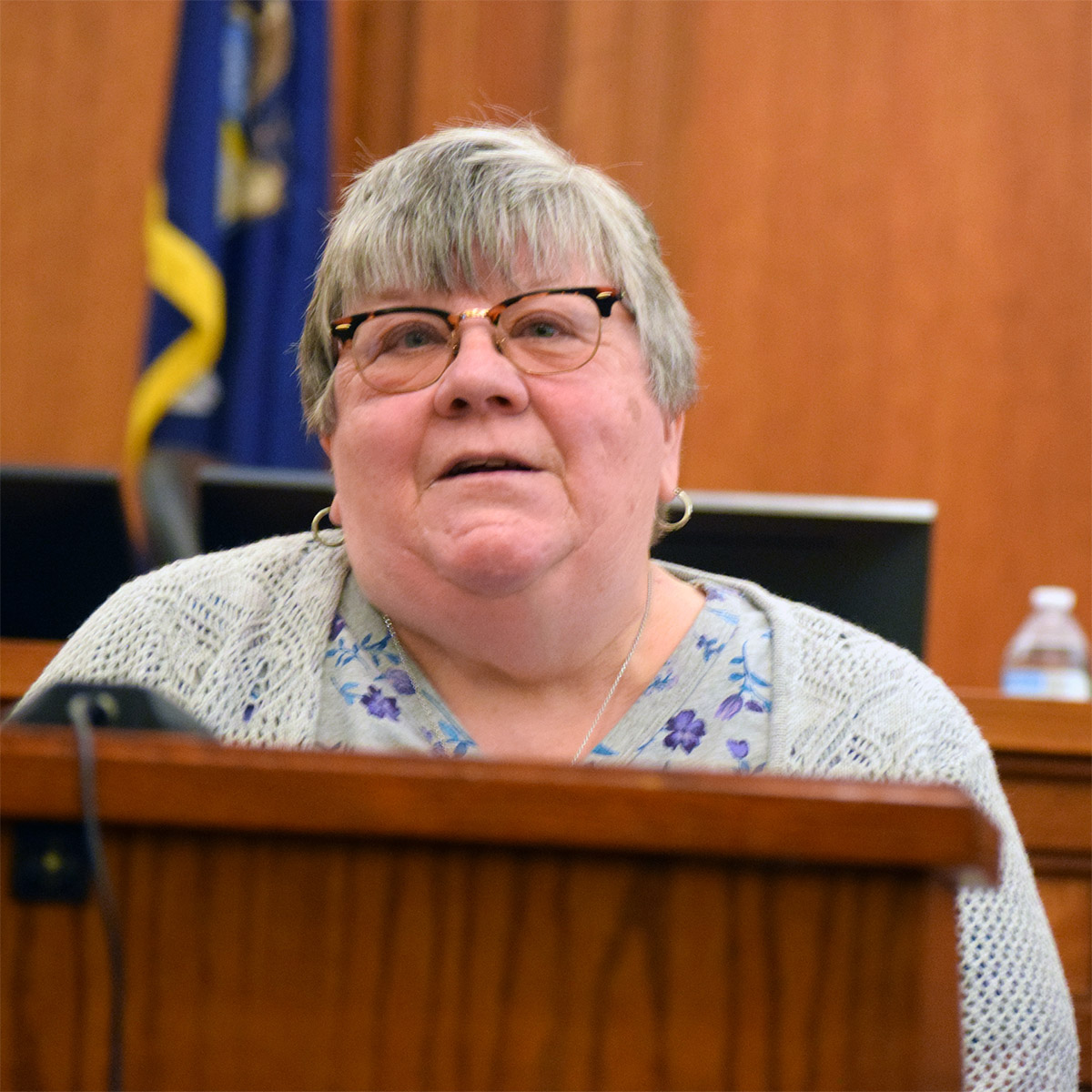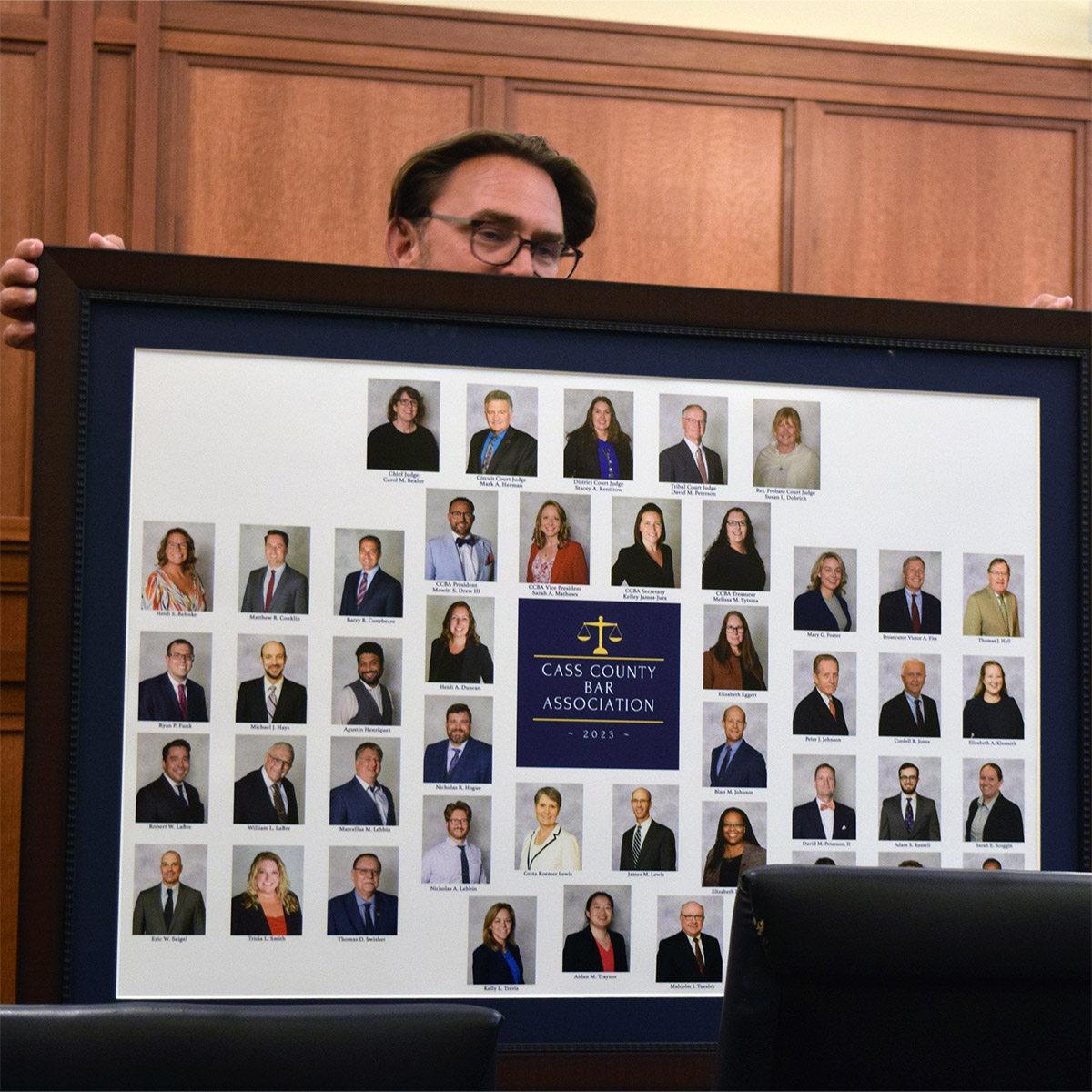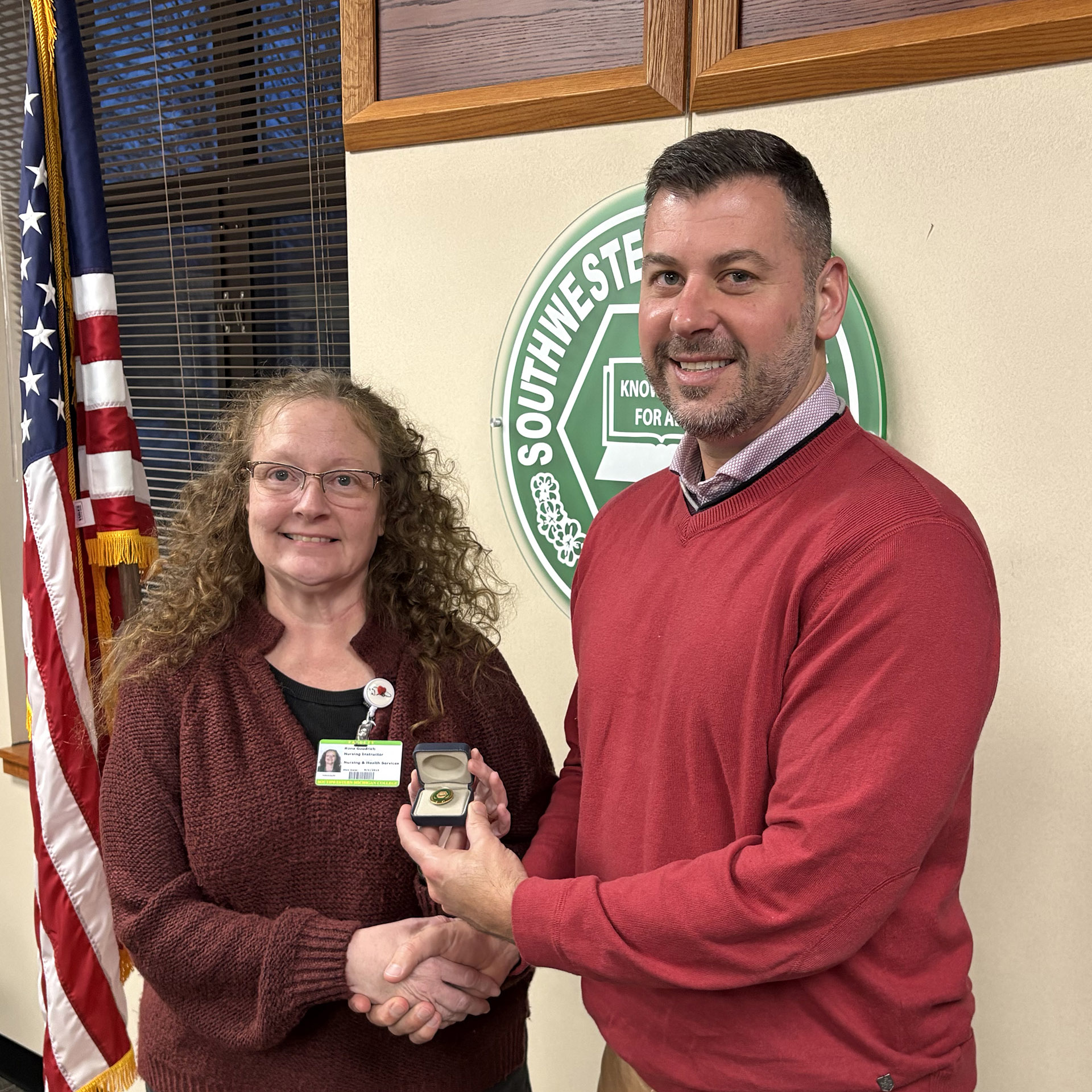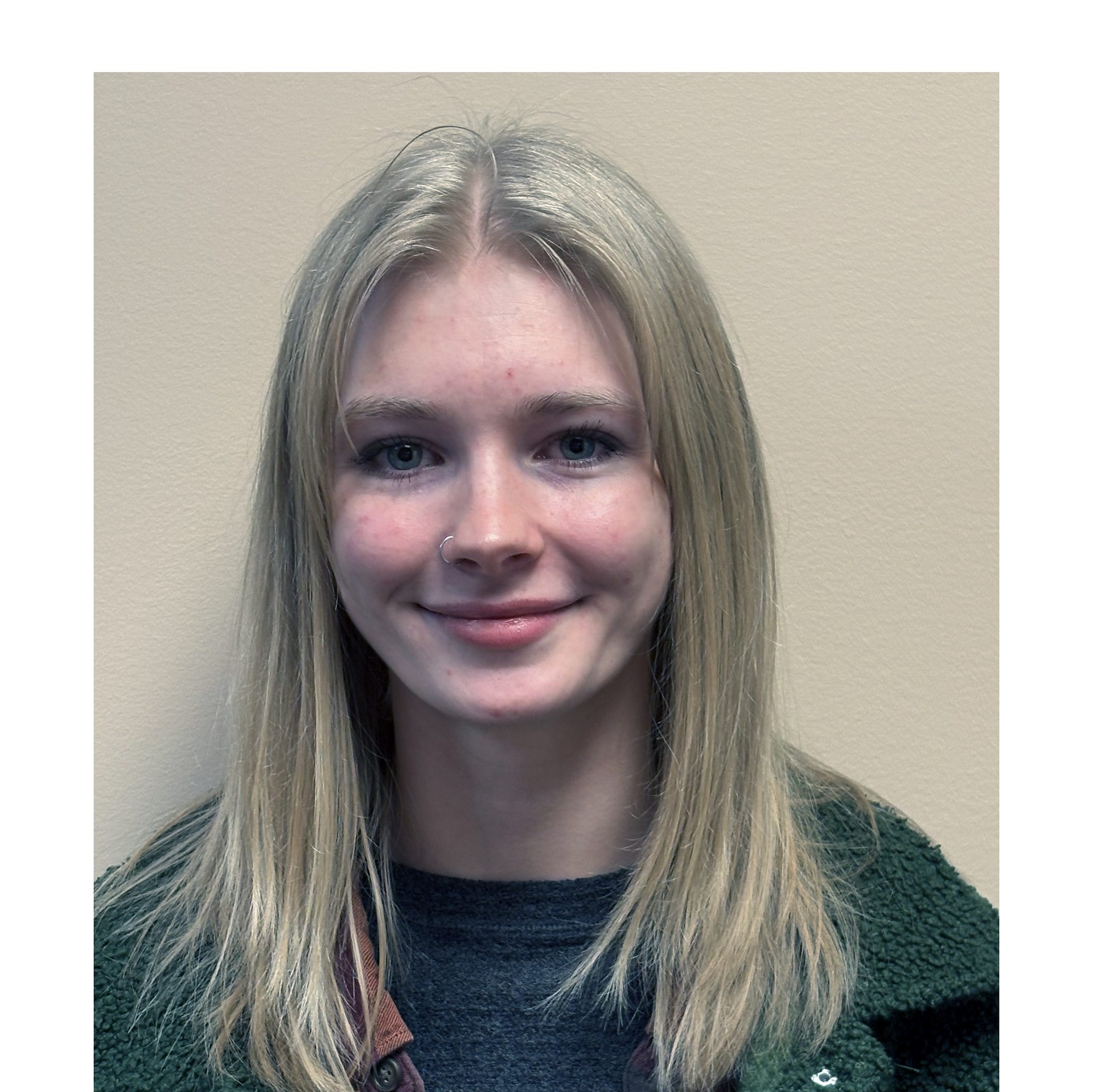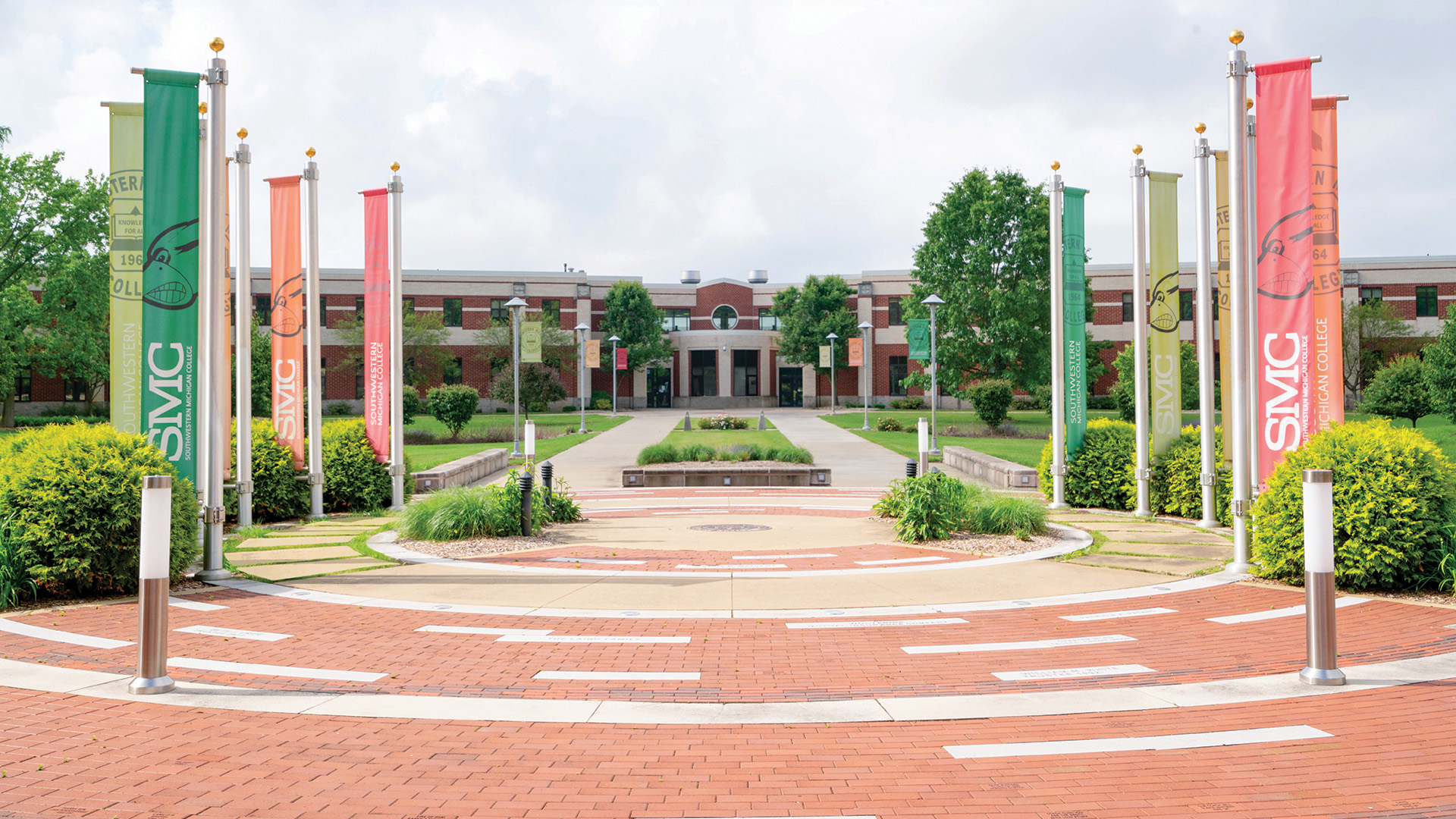
News
Cass County Bar Presents Law Day Liberty Bell to Dr. Mary Young-Marcks
Published on May 13, 2024 - 11 a.m.
Cass County Bar Association packed Chief Judge Carol Bealor’s courtroom May 10 to hear Law Day Liberty Bell recipient Dr. Mary D. Young-Marcks.
Young-Marcks just retired after a record 40 ½ years on Southwestern Michigan College’s faculty teaching government, criminal justice, social work, cultural anthropology and history as a professor of social science.
Theme for Law Day 2024 is “Voices of Democracy,” encouraging Americans to participate in elections by deepening their understanding of the electoral process.
Young-Marcks knows something about that. She has been not only an advocate for student success, but a recognized voice for democracy.
In 2017, she advocated SMC become a member of The Democracy Commitment and worked closely with Assistant Director of Student Life Branden Pompey to educate students about the importance of voting and to ultimately encourage them to vote. Because of their leadership, SMC made Washington Monthly’s “Best Colleges for Student Voting Honor Roll.”
Young-Marcks and her husband, Michael, were the Bar’s guests April 23-24 during the Michigan Supreme Court’s campus visit.
The Liberty Bell recognizes outstanding service by non-lawyer citizens who give of their time and energy to strengthen the effectiveness of the American system of freedom under law.
Cass County’s previous recipients include state Sen. John Proos in 2017; Jennifer Ray, Cass District Library, and Jim Kusa, Dowagiac Police Department, 2018; Preston Collett, Family Treatment Court Peer Support, and Dr. Barb Howes, Family Treatment Court, Adult Treatment Court and Swift and Sure Coordinator, 2019; Cassopolis Police Chief Frank Williams Jr. and Mary Geegan Middleton, Cass Family Clinic, 2021; Cass County Clerk-Registers Barb Runyon and Monica McMichael, 2022; and Marie Anderson, Victims’ Rights Coordinator, Cass County Prosecutor’s Office, 2023.
“The Liberty Bell Award started in Michigan,” Young-Marcks learned. “It was started by Flint attorney William P. Daniel in 1962. My parents always taught us about the importance of voting. They said they always needed to vote to cancel each other out, but they were very careful not to put their opinions on (their five children) because they wanted us to develop our own ideas. My siblings and I are the political spectrum because of that opportunity.”
Voting is considered the “most obvious” form of civic engagement, and Young-Marcks devoted a lot of time in her classes to the 26th Amendment lowering the age to vote to 18 during Vietnam and the landmark Voting Rights Act of 1965 prohibiting racial discrimination in voting.
“I turned 18 in October 1974 so made sure I was registered,” she said, “for an off-year election with the governor’s race. The Republican was incumbent William Milliken, the Democrat, Sander Levin,” who went on to serve in the U. S. House of Representatives.
“In the next 10 years I campaigned and lobbied about everything,” Young-Marcks said, “including with the governor’s wife, Helen Milliken, at one march.
She and former state budget director and lawmaker Al Pscholka attended the same Saginaw high school.
She started at Delta College to become a dental assistant, but didn’t like it, so transitioned into sociology. She earned a bachelor’s degree in social work from Central Michigan University, a master’s degree in public administration and her doctorate in college and university administration from Michigan State University.
“I started in January 1984 with five classes of 36 people” teaching required American government. “I told them it’s fun to work on elections, and that I wasn’t asking them to do anything I hadn’t already done,” Young-Marcks said. “Each state made up its own voting rules with the one constant being 21 and no women” until the 19th Amendment extended that right in 1920.
“In Georgia,” she said, “Roman Catholics couldn’t vote. In Maryland, atheists couldn’t vote. Six other states had language in their original constitutions prohibiting people who do not believe in God from holding office — Arkansas, Mississippi, North Carolina, South Carolina, Tennessee and Texas. In 1924, Congress gave citizenship to Native Americans, which just seems wrong. In 2024, there are still states working to not allow qualified citizens to participate.”
“I liked to show students that this right to participate was not automatic, nor was it easily gained,” Young-Marcks said. “As I told dual-enrolled students who cannot yet vote, you don’t have to be registered to participate because no matter where you live, you need to be involved in your community, like in the fall there’s Rake a Difference. United Way makes it a competition” among area volunteers to help their neighbors.
She encouraged students to attend law-related campus events such as when former Chief Justice Bridget McCormack spoke.
Young-Marcks thanked courthouse employees and elected officials because many of them visited her classroom to broaden her instruction with their voices.
